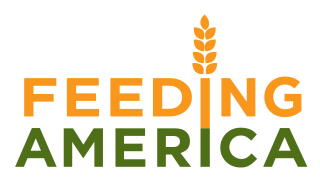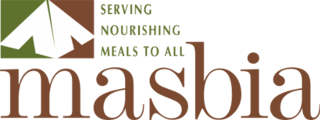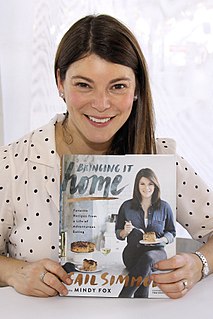Related Research Articles

Urban agriculture,urban farming, or urban gardening is the practice of cultivating, processing, and distributing food in or around urban areas. Urban agriculture is also the term used for animal husbandry, aquaculture, urban beekeeping, and horticulture. These activities occur in peri-urban areas as well. Peri-urban agriculture may have different characteristics.

A soup kitchen, meal center, or food kitchen is a place where food is offered to the hungry usually for free or sometimes at a below-market price. Frequently located in lower-income neighborhoods, soup kitchens are often staffed by volunteer organizations, such as church or community groups. Soup kitchens sometimes obtain food from a food bank for free or at a low price, because they are considered a charity, which makes it easier for them to feed the many people who require their services.
The culture of Los Angeles is rich with arts and ethnically diverse. The greater Los Angeles metro area has several notable art museums including the Los Angeles County Museum of Art (LACMA), the J. Paul Getty Museum on the Santa Monica mountains overlooking the Pacific, the Museum of Contemporary Art (MOCA), and the Hammer Museum. In the 1920s and 1930s Will Durant and Ariel Durant, Arnold Schoenberg and other intellectuals were the representatives of culture, in addition to the movie writers and directors. As the city flourished financially in the middle of the 20th century, culture followed. Boosters such as Dorothy Buffum Chandler and other philanthropists raised funds for the establishment of art museums, music centers and theaters. Today, the Southland cultural scene is as complex, sophisticated and varied as any in the world.

A food bank is a non-profit, charitable organization that distributes food to those who have difficulty purchasing enough to avoid hunger.

Feeding America is a United States–based nonprofit organization that is a nationwide network of more than 200 food banks that feed more than 46 million people through food pantries, soup kitchens, shelters, and other community-based agencies. Forbes ranks it as the second largest U.S. charity by revenue. Feeding America was known as America's Second Harvest until August 31, 2008.

Restaurant ratings identify restaurants according to their quality, using notations such as stars or other symbols, or numbers. Stars are a familiar and popular symbol, with scales of one to three or five stars commonly used. Ratings appear in guide books as well as in the media, typically in newspapers, lifestyle magazines and webzines. Websites featuring consumer-written reviews and ratings are increasingly popular, but are far less reliable.

Masbia is a network of kosher soup kitchens in New York City. Its three locations in the Brooklyn neighborhoods of Borough Park and Midwood, as well as the Queens neighborhood of Rego Park, serve over 500 free, hot kosher meals nightly. Masbia is the only free soup kitchen serving kosher meals in New York City. The organization receives 10% of its budget from government aid, relying heavily on private donations of money and food to meet its $2 million annual operating budget.

Project Angel Food is a 501(c)3 nonprofit organization in Los Angeles County which provides free meals for people too sick to shop and cook for themselves. Project Angel Food serves the majority of Los Angeles County with South Los Angeles and Metro Los Angeles being the two largest service areas for the organization. Latinos (39%), African Americans (29%), and Caucasians (21%) make up 89% of their clientele.

Afghan cuisine is largely based upon the nation's chief crops, such as wheat, maize, barley and rice. Accompanying these staples are native fruits and vegetables and dairy products such as milk, yogurt, and whey. The nation's culinary specialties reflect its ethnic and geographic diversity. Afghanistan is known for its high-quality pomegranates, grapes, and sweet, rugby-football shaped melons. The national dish of Afghanistan is Kabuli palaw.

Gail Simmons is a Canadian food writer and cookbook author. She has served as a permanent judge on BRAVO's Emmy-winning series Top Chef, since the show's inception in 2006. Simmons was previously the head critic on Top Chef Duels and host of Top Chef: Just Desserts, Bravo's pastry-focused spin-off of the Top Chef franchise. She was also co-host of "The Feed," which aired in 2014 on FYI, A+E's new lifestyle network. In addition to her work on Top Chef, Gail makes frequent television appearances on NBC's Today and ABC's Good Morning America, among others. She has been featured in such publications as New York magazine, Travel + Leisure, GQ, People, Los Angeles Times, and more.
FareShare is an Australian not-for-profit food rescue organisation which operates Australia's largest charity kitchens. It strives for a society where food is not wasted and no one goes hungry.
The Edible Schoolyard (ESY) is a 1-acre (4,000 m2) garden and kitchen program in at the Martin Luther King Jr. Middle School. a public middle school in Berkeley, California. The Edible Schoolyard was established in 1995 by chef and author Alice Waters and is supported by the Edible Schoolyard Project, a non-profit founded by Waters in 1995 in celebration of the 25th anniversary of her famed Berkeley, California restaurant, Chez Panisse.

Mark Peel is a chef and restaurateur in California. Campanile, a restaurant owned by Peel and his former wife Nancy Silverton, won a James Beard Foundation Award in 2001. Peel specializes in California cuisine.
Louis Felix Diat (1885–1957) was a French-American chef and culinary writer. It is often claimed that he created vichyssoise soup, though this is unproven and disputed.
The New York City Coalition Against Hunger (NYCCAH) is a nonprofit organization, which aims to “enact innovative solutions to help society move ‘beyond the soup kitchen’ to ensure economic and food self-sufficiency for all Americans”. NYCCAH works collaboratively with local, state, and national legislatures as well as New York residents and community associations. In contrast to other organizations, NYCCAH generally does not distribute food but rather concerns itself with providing technical assistance to groups which do while simultaneously affecting hunger policy at a more macro-urban scale.
Robert Egger is a nonprofit leader, author, speaker and activist.

City Harvest is New York City's largest food rescue organization. The organization collects food that would otherwise go to waste from restaurants, bakeries and cafes.
The Harrison Studio consists of Helen Mayer Harrison (1927–2018) and Newton Harrison who are among the earliest and the best known social and environmental artists. Often simply referred to as “The Harrisons”, Helen and Newton have produced multimedia work across a vast range of disciplines. They work in collaboration with biologists, ecologists, historians, activists, architects, urban planners and fellow artists to initiate dialogues and create works exploring biodiversity and community development. Helen and Newton Harrison are both Professors Emeriti at University of California, Santa Cruz, and University of California, San Diego. They have had numerous international solo exhibitions and their work is in the collections of many public institutions including the Pompidou Center, the Museum of Modern Art, the San Jose Museum of Art, the Nevada Museum of Art, and the Chicago Museum of Contemporary Art. In 2013 the Harrisons became the first recipients of the Corlis Benefideo Award for Imaginative Cartography. Stanford University Libraries acquired The Helen and Newton Harrison Papers, an extensive archive that documents their life and work with a significant amount of audiovisual material and born-digital files.

The Daily Dose Cafe is an organic cafe and espresso bar in downtown's Arts District in Los Angeles, California, United States, best known for its farm-to-table inspired style of cooking known as California cuisine. Restaurateur, food activist, and chef Sarkis Vartanian opened the cafe in 2012, dedicated to serving organically produced food, artisan coffees, home made baked goods, and nutritionally balanced classic meals. All ingredients come from their regional farm, community gardens, local vendors, and farmer's markets to make regional organic produce more accessible to the industrial Downtown community of Los Angeles in the ethos of the slow food movement.

The Capuchin Soup Kitchen (CSK) is a religiously affiliated soup kitchen and non-profit organization located in Detroit, Michigan. It was founded by the Capuchin friars to provide food for the poor during the Great Depression and is sponsored by the Capuchin Franciscan Province of St. Joseph. While it was initially established as a soup kitchen, CSK now includes a food and clothing bank, a drug rehabilitation program, and an after school and summer youth program. Through its various ministries CSK serves approximately 560,000 individuals each year.